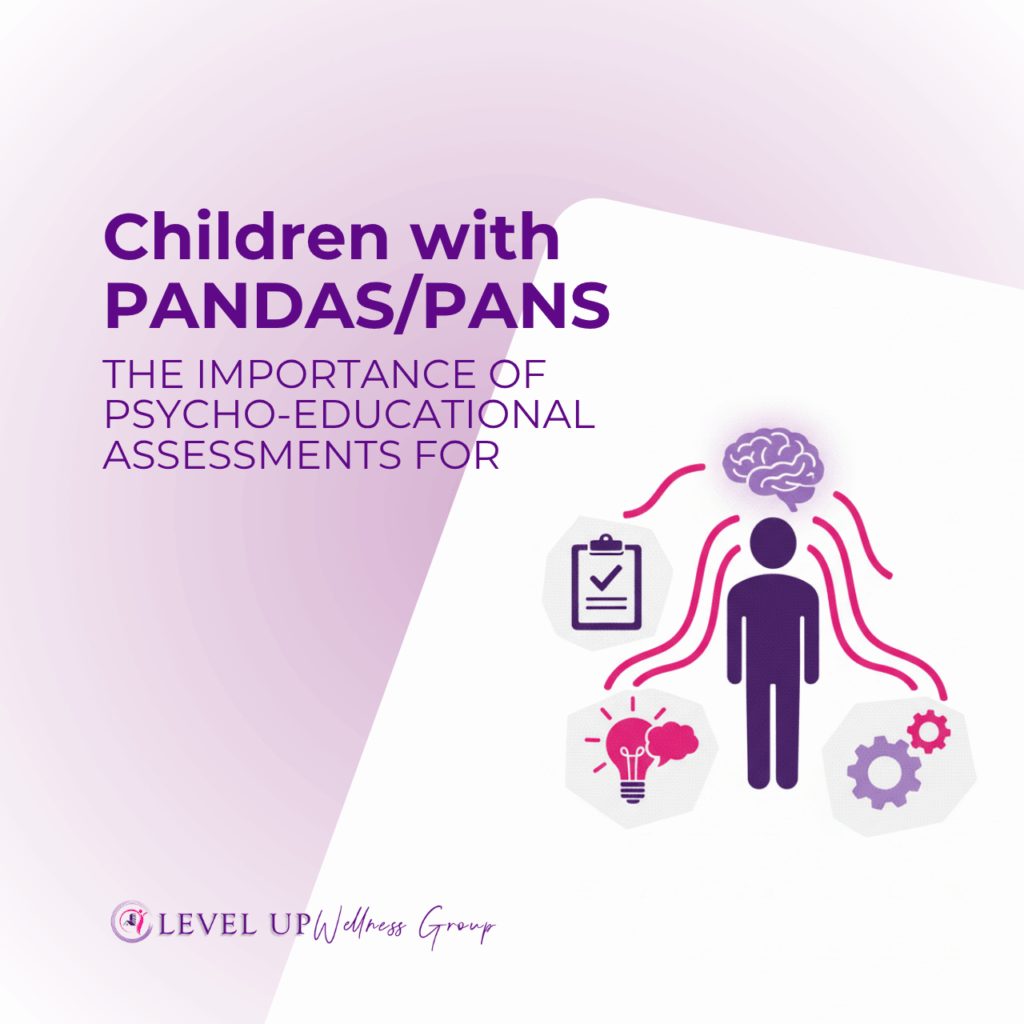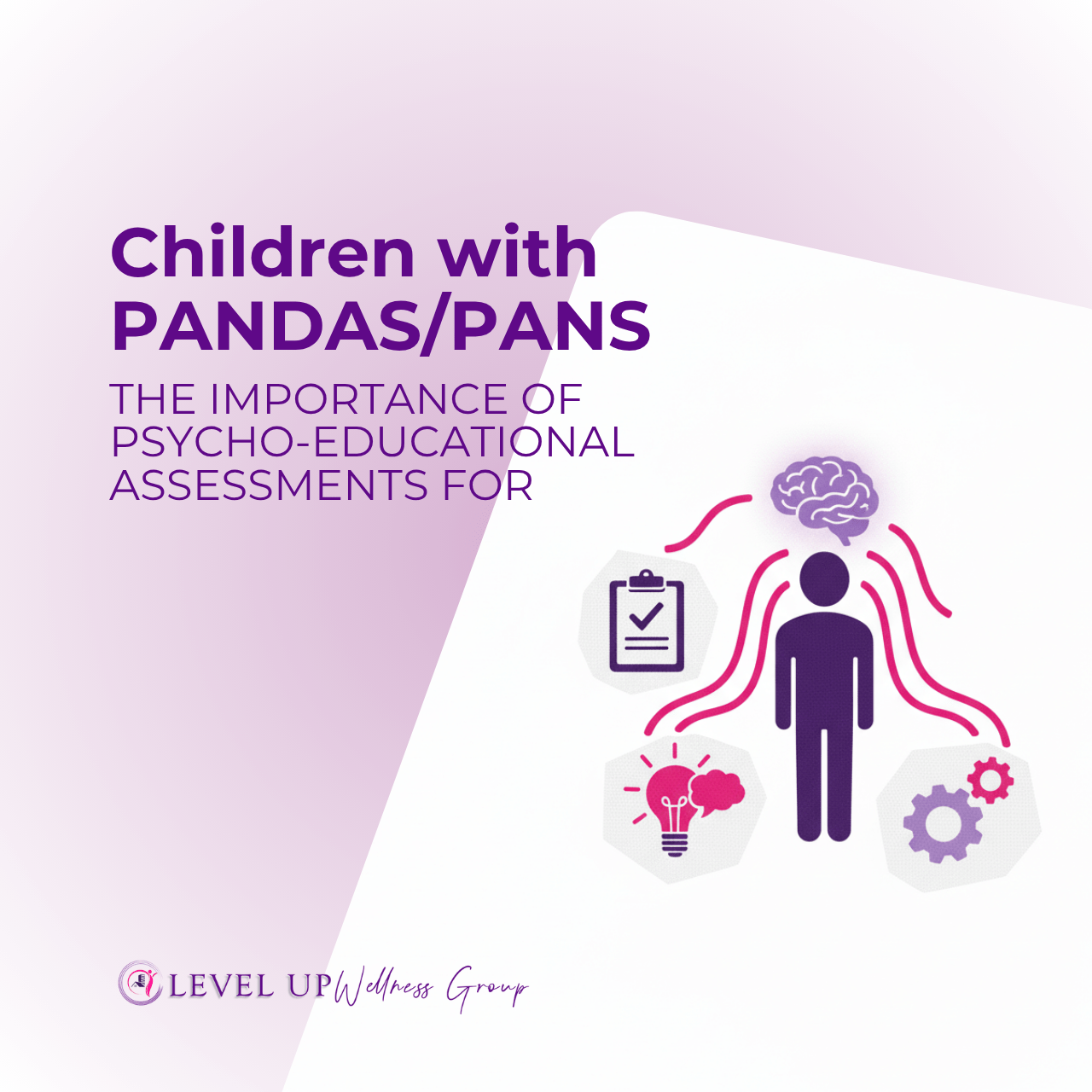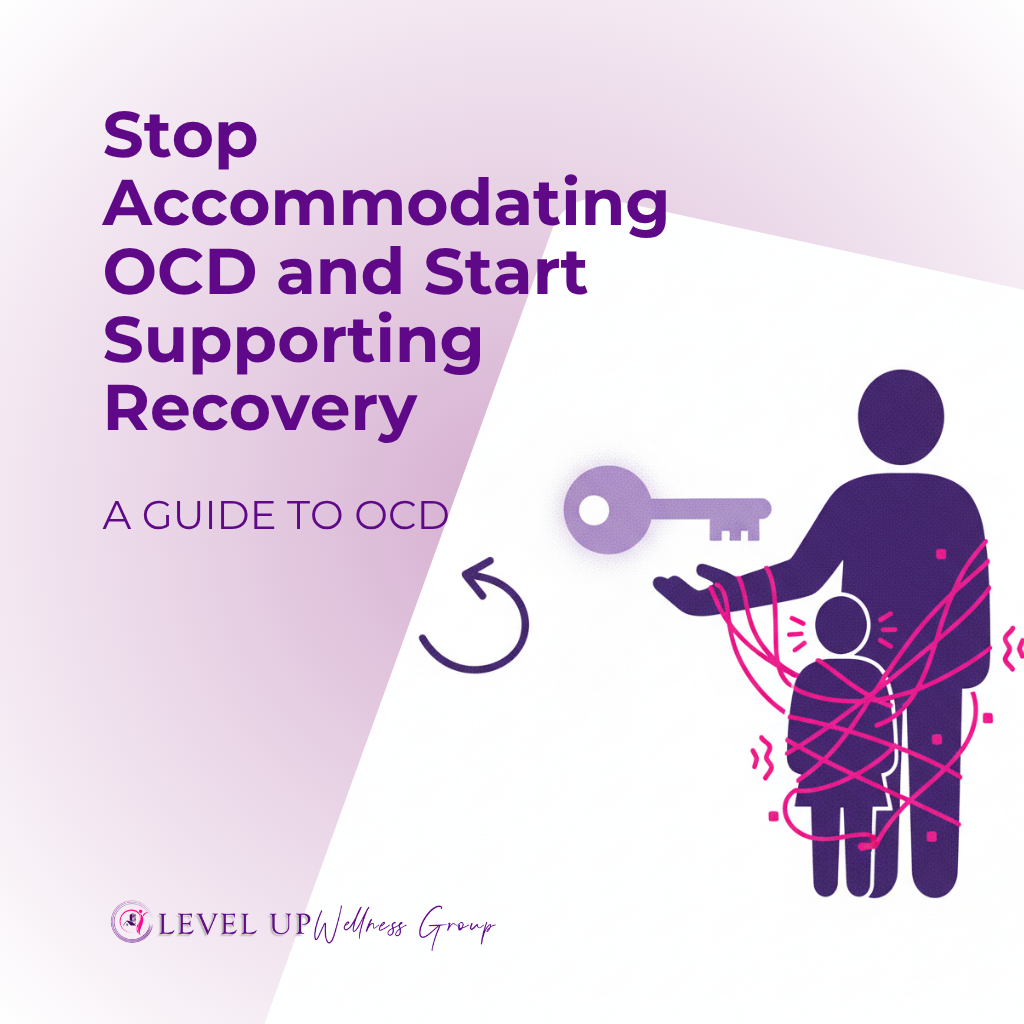
When a child has a diagnosis of Pediatric Autoimmune Neuropsychiatric Disorders Associated with Streptococcal Infections (PANDAS) or Pediatric Acute-onset Neuropsychiatric Syndrome (PANS), their learning journey can be especially challenging. PANDAS and PANS are complex conditions that can cause a range of neuropsychiatric and behavioral symptoms, including obsessive-compulsive tendencies, tics, mood changes, and attention difficulties. These symptoms can fluctuate, creating unique challenges in the educational setting.
Understanding the Psychoeducational Assessment Process
Psychoeducational assessments involve a series of standardized tests, observations, and interviews to evaluate a child’s cognitive, academic, social, and emotional functioning. For children with PANDAS/PANS, this assessment provides insight into how their fluctuating symptoms—often linked to immune responses—impact key areas like:

Attention and focus
Frequent struggles with maintaining attention, especially during flare-ups, can lead to inconsistency in academic performance.

Memory and processing speed
Children with PANDAS/PANS may experience slow processing speeds or short-term memory issues, making it challenging to retain and recall information.

Executive functioning
Planning, organizing, and regulating emotions are often difficult for these children, leading to frustration and reduced engagement with schoolwork.
PANDAS/PANS symptoms can also manifest as periods of regression in academic skills, which can be alarming for both the child and their family. These symptoms tend to fluctuate or “wax and wane” over time, further complicating the learning experience. Therefore, a psychoeducational assessment helps create a clear picture of how these symptoms affect the child academically and how best to address them.
How Accommodations Support Learning for Children with PANDAS/PANS
One of the most critical outcomes of a psychoeducational assessment is the identification of appropriate accommodations. These accommodations are adjustments or modifications to the learning environment that help a child overcome barriers posed by their condition. Research consistently shows that individualized accommodations can significantly improve educational outcomes for children with neuropsychiatric and autoimmune-related conditions like PANDAS/PANS.
Here are some examples of accommodations that might benefit children with PANDAS/PANS:
- Flexible deadlines and testing schedules: Since children with PANDAS/PANS may have unpredictable symptom flare-ups, providing flexible timelines for assignments and tests helps reduce stress and allows them to perform at their best.
- Reduced workload during flare-ups: Modifying the volume of work can help avoid overwhelming the child when symptoms are intense, allowing them to maintain focus on the most essential tasks.
- Extended time on tests and assignments: Cognitive processing can be slower during flare-ups, and extra time can alleviate pressure and improve performance.
- Access to a quiet, separate space: Children with attention and sensory challenges may benefit from a quieter environment to concentrate better during tasks and assessments.
- Frequent breaks: Allowing breaks during schoolwork or testing helps these children manage fatigue and emotional regulation, which can be challenging during a flare-up.
- Support for executive functioning: Teachers and support staff can offer organizational tools, such as checklists or visual schedules, to help the child with planning and completing tasks.
The Importance of Early Intervention and Supportive Learning Environments
Research underscores the importance of early assessment and intervention in supporting children with neuropsychiatric conditions. A study published in Clinical Pediatrics highlights that children with PANDAS/PANS are more likely to experience academic difficulties, behavioral challenges, and social struggles without adequate support (Frankovich et al., 2015). The study emphasizes the need for comprehensive assessments to ensure that children receive the necessary accommodations to help them thrive in school.
By understanding each child’s unique needs through a psychoeducational assessment, schools can tailor educational support to the child’s specific challenges. This early intervention not only supports their academic progress but also fosters emotional resilience, reduces frustration, and helps children feel understood and valued. A supportive learning environment that incorporates accommodations also decreases the likelihood of secondary challenges, such as anxiety and low self-esteem, which can arise from ongoing academic struggles.
Long-Term Benefits of Psychoeducational Assessments
Children with PANDAS/PANS often require ongoing academic and emotional support as they progress through school. By completing a psychoeducational assessment early on, educators, parents, and healthcare providers can make data-driven decisions that support the child’s learning and development. Additionally, these assessments help provide clarity to everyone involved in the child’s education, facilitating collaboration between the school and healthcare teams.
Furthermore, with accommodations in place, children with PANDAS/PANS can experience greater consistency in their learning journey. This consistency helps them stay on track academically, even during periods of fluctuating symptoms, and fosters a positive relationship with learning. Ultimately, psychoeducational assessments are not just diagnostic tools—they are pathways to ensuring every child, regardless of their health challenges, receives the support they need to reach their potential.
Schedule Your Child's PANDAS/PANS Assessment
Our experienced specialists will conduct a thorough PANDAS/PANS and psychoeducational assessment to identify underlying causes and develop a tailored treatment plan.
Supporting Your Child with Level Up Wellness Group
At Level Up Wellness Group, we understand the unique needs of children with PANDAS/PANS and the impact of their fluctuating symptoms on learning. Our psychoeducational assessments are designed to provide a comprehensive understanding of each child’s strengths and challenges, leading to personalized recommendations for their education. We collaborate closely with families, schools, and healthcare professionals to ensure that the right accommodations are in place and that every child receives the tailored support they need to succeed.
If you are interested in learning more about psychoeducational assessments and how they can support your child contact us today. Together, we can build a supportive learning environment that empowers your child to thrive, regardless of the challenges they may face.





